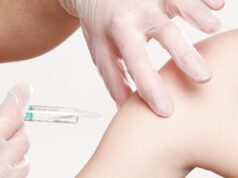
The American College of Cardiology (ACC) and other North American cardiology societies, including the Canadian Association of Interventional Cardiology (CAIC), have issued guidance on ethically and safely reintroducing invasive cardiovascular procedures after the peak of COVID-19 has passed. The document was published in the Journal of the American College of Cardiology.
According to an ACC press release, the “forced appropriate, but significant, restrictions” on routine medical care, including invasive procedures, to treat cardiovascular disease has meant that many untreated patients with cardiovascular disease are at an increased risk of adverse outcomes. Additionally, postponed diagnostic tests can lead to a high burden of undiagnosed cardiovascular disease that will further delay time to treatment. Therefore, when possible, there is need to resume cardiovascular invasive procedures and diagnostic tests.
In the guidance document, David Wood (Centre for Cardiovascular Innovation, St Paul’s and Vancouver General Hospital, Vancouver, Canada) and colleagues have outlined three areas that must be considered when reintroducing services, including:
- Ethical considerations that include maximising benefits by prioritising procedures that will ensure the most lives or life years are saved over those that benefit fewer people to a lesser degree, ensuring fairness in how cases are treated, ensuing proportionality so that the risk of further postponing treatment is weighed again exacerbating the spread, and maintaining consistency in reintroduction across populations regardless of ability to pay and assuring health equity.
- Collaboration between regional public health officials, health authorities and cardiovascular care providers to manage the dynamic balance between provision of essential cardiovascular care and responding to future fluctuations in COVID-19 infections and hospital admissions.
- Protection of patients and health care workers through regions having the necessary critical care capacity, personal protective equipment (PPE), and trained staff available, and a transparent plan for testing and re-testing potential patients and health care workers for COVID-19. Strategies for social distancing between patients and health care workers should also be considered, including virtual pre-procedural clinics, virtual consenting for procedures and diagnostic tests, and minimising the number of health care workers in physical contact with any given patient.
Athena Poppas, ACC president and one of the authors on the document, comments: “Unprecedented times call for unprecedented collaboration, and a collaborative approach will be essential to mitigate the ongoing morbidity and mortality associated with untreated cardiovascular disease. It is essential that we work together to ensure cardiovascular disease patients are safely cared for during this pandemic and that we do not allow for a new crisis of undiagnosed, untreated or worsening cardiovascular disease to occur in the aftermath of this pandemic.”








